12 Eerie Stories That Continue to Haunt People to This Day
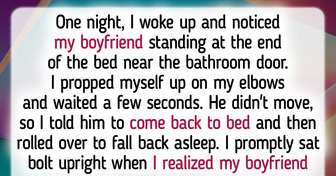
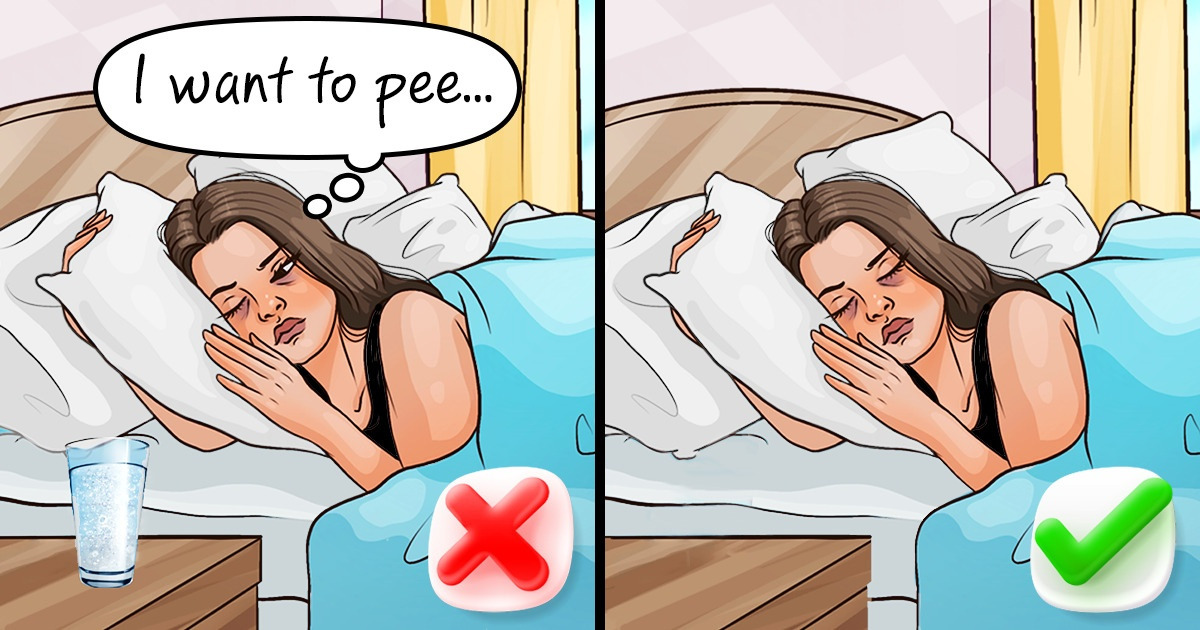
In a recent survey, 30% of the people asked said that they were diagnosed with a sleeping disorder. This percentage is massive and it shows how everyday life and stress keeps people up at night. And while adults need to sleep between 7 to 9 hours, some of you might be getting more than 5 hours every night. We are here to give you a few ideas about the reasons why you have trouble sleeping and staying asleep during the night.
Carpets can add a nice touch to your bedroom and make it look cozy, but they also collect lots of dust and might potentially trigger allergies. This may lead to coughing and difficulty breathing, which, in turn, can disturb your sleep. If you can’t imagine a home without rugs, opt for small ones that don’t collect that much dust and are easier to clean.
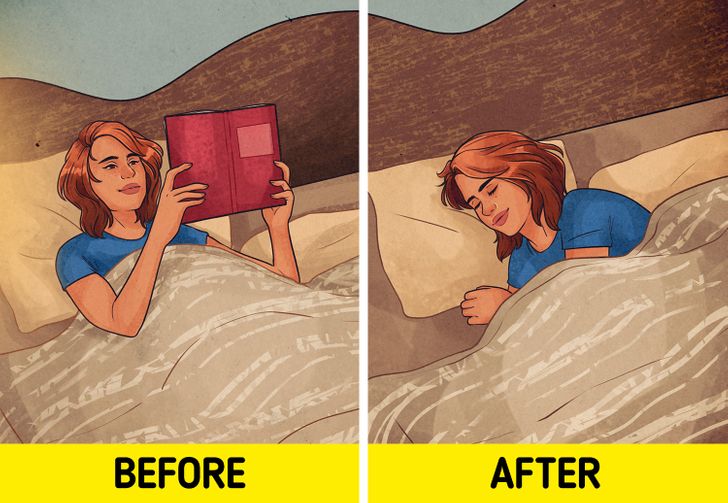
At the end of a busy day, all you probably want to do is to finally lay your head on a pillow. But creating some relaxing evening rituals can actually help your brain put a space between daytime and night and will help you fall asleep faster. Your bedtime routine may include a light snack before bed, a warm shower, or reading a good book. Your evening rituals don’t have to be complicated, just choose something that quiets your mind, that will help you unwind more easily.
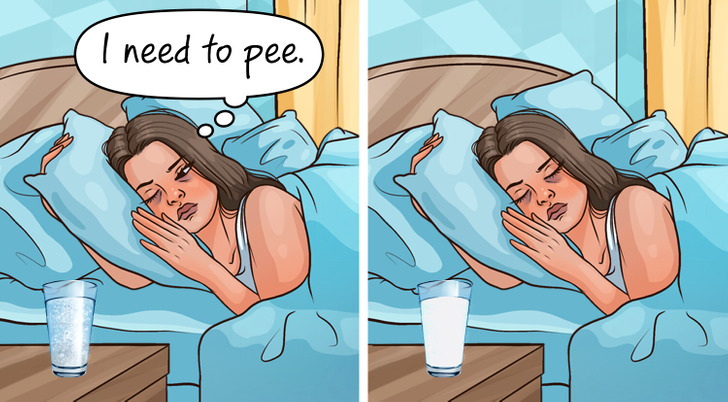
Sometimes keeping a glass of water on the bedside table can be a great way to help you remember to drink fluid before bed. If you struggle to fall asleep, the same glass of water will increase the urge to visit the bathroom and ruin your sleep. A good alternative to avoid sleepless nights is to drink a glass of milk before bed. Thanks to the compounds in milk that produce the happy hormone, your head will be clearer and you will have a restful night.
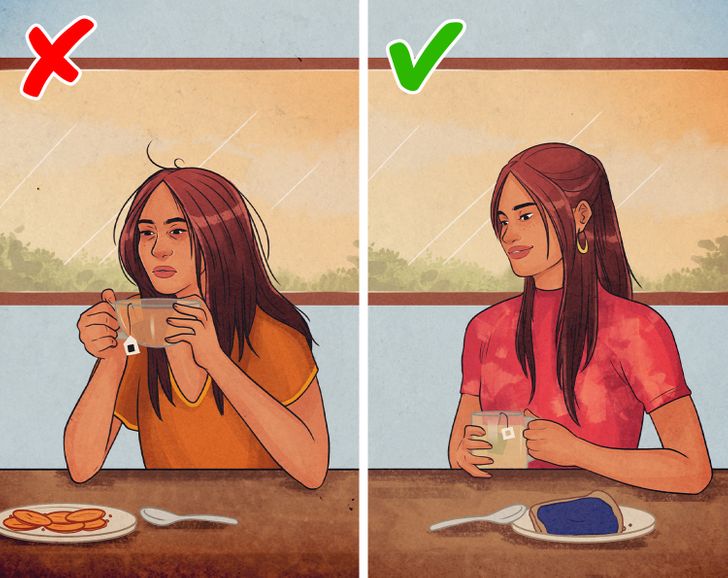
Herbal teas are known for their calming effects and have been used to treat insomnia for years. And although many teas, like chamomile or lavender, can help you relax and even improve the quality of your sleep, some beverages work the other way around. For instance, black tea is high in caffeine and may cause nervousness and insomnia.
How you spend the nighttime in your shared bedroom with your partner can also influence your daytime functioning, marital satisfaction, and psychological and physical health. And when 2 people with different bedtime preferences and nighttime schedules end up together, changing themselves just to please their partner’s needs might harm their relationship in the long run.
Sleeping in different bedrooms with your partner means that the 2 of you will have a place just for yourselves where you can relax after an exhausting day. This way, both of you can satisfy your needs without tiptoeing around and worrying about whether your partner might wake up because you want to watch the latest episode of your show before bed.
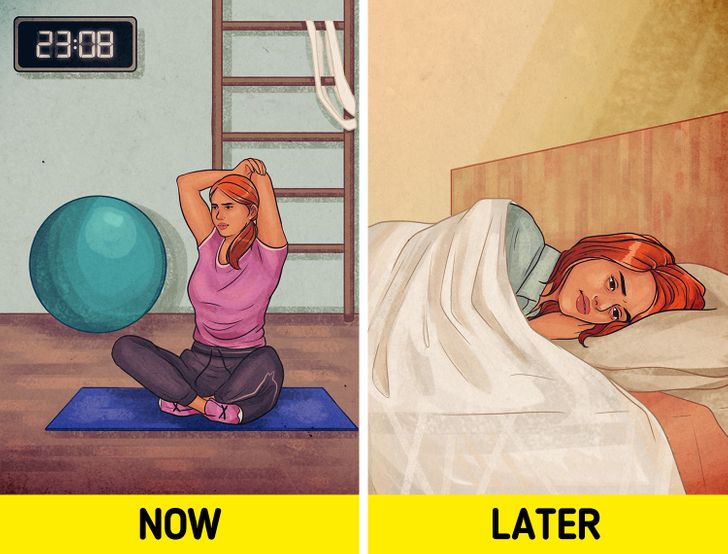
Exercising helps you relax and get rid of anxiety, which, in turn, will improve your sleep. But working out too late in the day may do more harm than good and wreak havoc on your good night’s sleep. Going to the gym within an hour of bedtime won’t allow time for your body temperature to drop, causing you to toss and turn in your sleep and wake up at night. If you’re a night owl and prefer to work out at night, stick to low-intensity exercises at least 4 hours before going to bed.
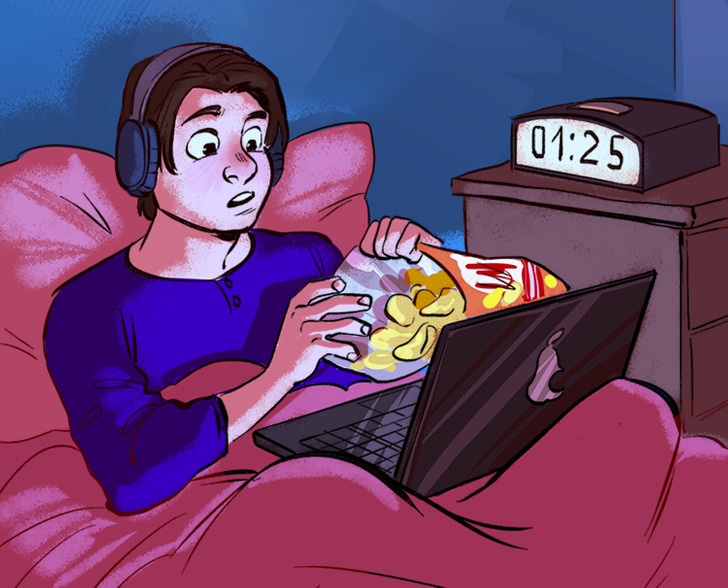
A late-night check-in with the workplace and stress about your job are more likely to leave you feeling anxious or upset or keep you thinking about things you have to get done the next day. Unfortunately, the more time we spend working in bed, the more our brains start to believe that this is the best position to be awake and productive, but it’s completely the opposite. This may make it difficult to get to sleep at night or stay asleep.
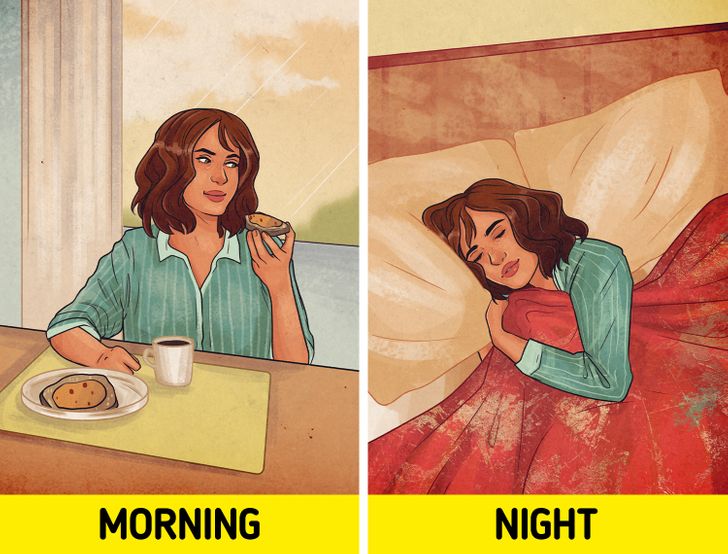
Breakfast is called the most important meal of the day for a reason. And although you just might not have time during the busy morning hours, rushing out the door without having a bite to eat affects not only your weight and ability to concentrate, but also the quality of your sleep. People who regularly skip breakfast are more likely to sleep poorly and wake up feeling cranky.
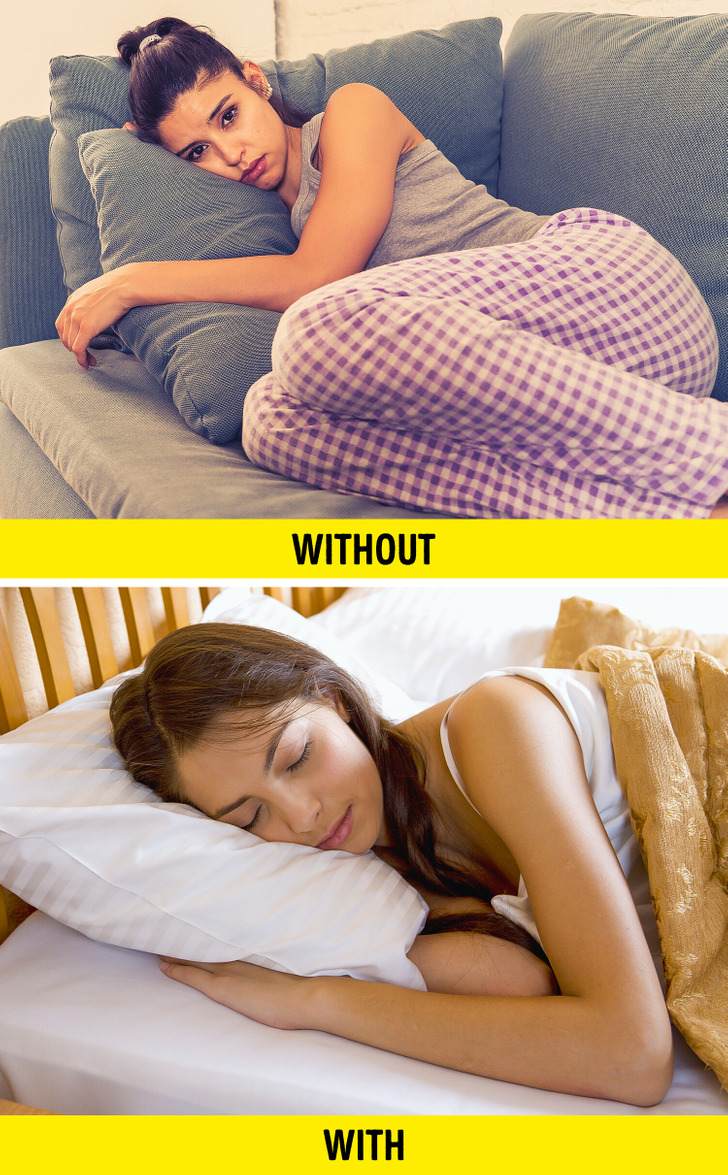
Blankets create a microclimate: a barrier where the temperature doesn’t change very much. This warms up our skin and the surrounding factors that cool down our body don’t affect us as much. So, we fall asleep faster and have a better and less disturbed sleep.
When it’s still chilly outside, you naturally want to cover yourself with a heavy blanket and turn on the heater. But if you want to wake up feeling refreshed, it’s better to sleep in a slightly cold bedroom. Studies have shown that we sleep better in colder environments, and the temperature in your bedroom affects your sleep even more than external noise.
Do you have problems with your sleep and what do you suspect is the reason you can’t get a good night’s sleep?











